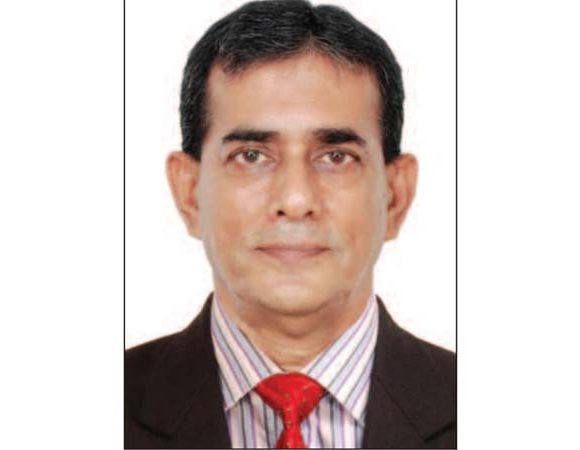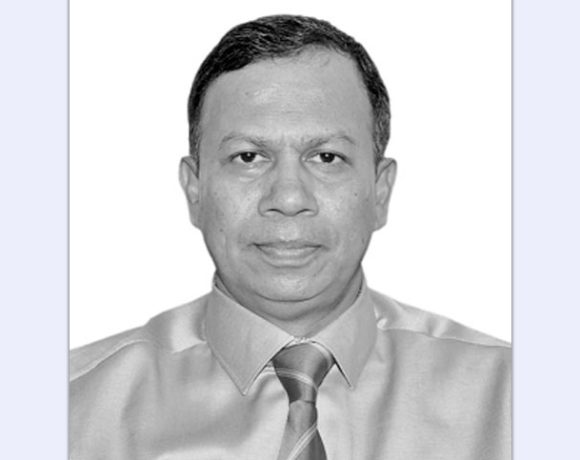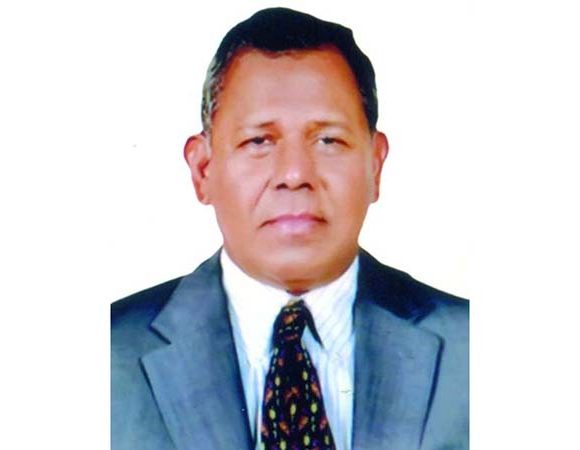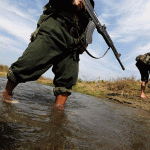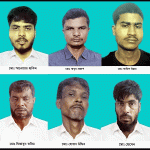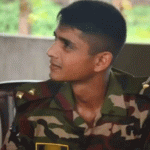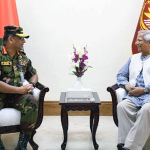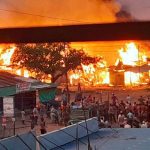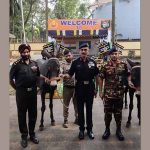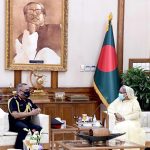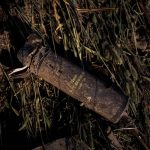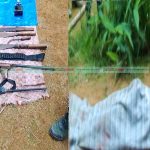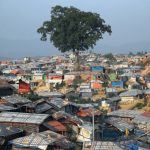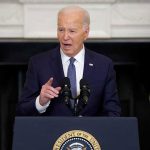25 Years of CHT Peace Treaty: Challenges and way forwards
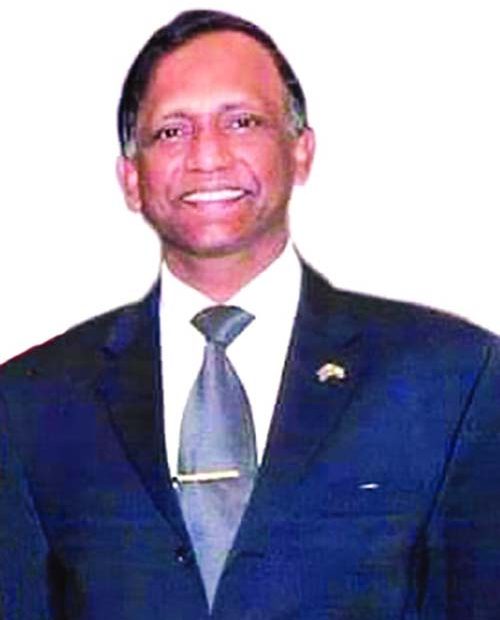
The tribal leaders voiced for their rights to have a separate entity in Chittagong Hill Tracts (CHT) after the emergence of Bangladesh as an Independent state in 1971. Genesis of these problems dates back to the mid-fifties with the construction of the Kaptai Dam. This resulted in a large-scale tribal displacement leading to discontentment. The birth of Prabattya Chattagram Jano Sanhati Samity (PCJSS) in 1972 gave further momentum to the political aspiration of the tribal people under the leadership of Manabendra Narayan Larma. Under such compelling circumstances, Bangladesh Army was deployed for Counter Insurgency with a view to safeguarding the territorial integrity and maintaining the stability of CHT. On 02 December 1997, under the leadership and political wisdom of the then Government, the long desired “Peace Accord’ was signed between the Government of Bangladesh and the PCJSS, the political front of Shanti Bahini that waged an armed struggle for the autonomy of the CHT since mid-1970s. The accord has been hailed internationally as a successful case of conflict resolution. Signing of ‘Peace Accord’ has not only created a conducive environment for establishing peace in the entire CHT but also offered unique opportunity to grow sound economic and political culture in this region.

Shanti Bahini, the armed group of PCJSS, moved ahead its political agenda through a path of killings, adductions and other means of coercion. Due to Shanti Bahini’s brutal attacks and retaliations by the Bengalis, a good number of tribal families took refuge in the neighboring Indian States during 1985-92. As a result of armed encounters, insurgents and SFS, both incurred loss of lives and properties. Additionally, Shanti Bahini committed some gruesome human rights violations in the form of abductions, killings and burning habitats in several areas of CHT. As per the political approach the Government of Bangladesh undertook a holistic approach comprising political, socio-economic and military lines of operation since the inception of hostility. Military means could successfully contain insurgency within limit and, as a result, socioeconomic and political process could be steered as intended.
The process of dialogue imbibed with political wisdom and pragmatic approach ultimately brought an end to the insurgency through signing of the ‘CHT Peace Accord’. It is important to mention here that, the SFs never operated under any ‘Special Power Act’ to quell insurgency in CHT rather had always worked as part of the political process within the framework of ‘In Aid to Civil Power’. Peace was always the goal not victory in all efforts to demonstrate extreme patience and human attitude despite enormous constraints and challenges.
In the Post-Peace Accord scenario the Government has attached highest priority for the sustained socio-politico and economic uplift of the region to implement CHT Peace Accord. Ministry of CHT Affairs headed by a tribal Member of Parliament has been established in 1998. A 25-member Regional Council headed by Shantu Larma (the ex-rebel leader) and 5-member interim Hill District Councils (HDC) each headed by a tribal person has been formed in three hill districts. So far 30 out of 33 subjects/departments have been handed over to the Hill District Councils and handing over of the rest is in progress. A Task Force for the Rehabilitation of Repatriated Refugees and Identification and Rehabilitation of IDP’s within CHT has completed rehabilitation of all tribal refugees amounting 64,612 individuals of 12,223 families. Out of 72 clauses of Peace Accord, 48 clauses are fully implemented, 15 are partially implemented and rest 9 are on the process of implementation. Peace Accord implementation Process Monitoring Committee, a Parliamentary Standing Committee’ of MoCHTA, has been formed. A land Commission, headed by a retired justice, has been working to settle land disputes in accordance with Land Dispute Settlement Act-2001. As per the peace treaty a brigade size force and 241 temporary security forces camps have been withdrawn from CHT.
To evaluate the current situation in CHT; inter-tribal party skirmishes, communal tension and other social crimes are observed in regular phenomenon. In spite of their differences over Peace Accord and leadership feuds, all tribal parties have common stance regarding core issues like land disputes, removal of settler Bengalis, withdrawn of Army and indigenous issues. By and large, the politics of CHT revolves around CHT and ethno-centric issues, rather than mainstream national politics, Inter-party power politics for control over area and illegal toll collection, armed clashes, killings, abductions, dire exchanges continue to create instability in the political culture of CHT.
According to an interview of Mr Shantu Larma on 11 November 2011 in Independent News Channel, PCJSS is maintaining armed cadre for different purposes. As per the clause of CHT Agreement, PCJSS was supposed to surrender with all arms and equipment. However, from the day of signing the CHT Agreement, UPDF opposed PCJSS and became one of the rival group of Mr Shantu Larma. In addition JSS (Reformist) were separated from PCJSS due to ideological conflict in 2010. UPDF (Democratic) was formed from UPDF (Main) due to the same reason i.e. ideological conflict with UPDF (Main). Besides, emergence of Marma Nationalist Party (MNP) and Kuki-Chin National Front (KNF) in Rangamati and Bandarban respectively has become a new challenge to JSS (Main). Therefore, JSS (Main) is gradually losing ground and overall domination in CHT.
However, the miscreants sometimes appeared as a separate military force in support of their dream of establishing an ‘Independent Jummaland’ in CHT. The vested quarters also do not hesitate to portray Mr M N Larma as „Father of the Jumma Nation‟. At the same time the National Flag, National ID Card and currency of proposed Independent Jummaland are being displayed publicly. In 2011, they have published a list of complete and separate government structure in social media claiming Mr Shantu Larma as President and Mr Pretimay Khisa as Prime Minister.
Sudden emergence of KNF in Bandarban area with the claim of full autonomous state has become a serious concern for the country. Under the leadership of Nathan Bowm, KNF is trying to build a regular Army in order to create a new state comprising of Baghaichari, Barkal, Bilaichari, Rowangchari, Ruma, Thanchi and Alikadam Upazilla of CHT. A close connection between KNF and „Jamatul Ansar Fil Hindal Sharqiya‟ has drawn national concern about the existence of KNF in CHT. From different media, it is learnt that KNF has been imparting training to the militants of the new extremist group which is a serious concern.
After ILO Convention – 2007, the tribals of CHT are trying to create pressure on the Government for getting recognition as indigenous. Despite having no criteria to be recognized as indigenous, the tribals are vocal on the indigenous issue. The Tribal leaders are employing national and international lobbyist groups in order to obtain additional rights and facilities from the country.
A vested group regularly participate in propaganda campaign to defame the image of the country at national and international forums. They are also conducting systematic hate campaign through seminars, talk shows, leaflets, posters, social media etc. Moreover, many tribal students with foreign scholarship are running hate campaign against the country from their respective countries. Kolpona Chakma is the glaring example of fabricated information as part of hate campaign.
There are as many as 69 tourist spots now in CHT at present. The Regional Parties and the Tribal leaders are often against Government initiative of exploring tourism potentials in CHT. The armed miscreants have burnt tourist vehicles in 2018 to create menace among tourists. Besides, abduction of tourists from different places is a regular incident in CHT. The protest against the initiative of constructing a five star hotel at Chandrapahar, Bandarban is the vivid example of negative posture of Tribal leaders towards tourism.
Land is a complex and one of the core issues in CHT. The prospect of settlement of land dispute is further complicated due to partial amendment of Land Dispute Act 2001 under the demand of JSS but issues like traditional land rights of Tribals, return of lands to refugee/IDPs and issue of allocation of Govt khas land to Bengalis through ‘Kabuliat’ etc remain the burning points. As heard, the recent fresh list of 81,777 families of nearly 5 lacs tribal people as refugees and IDPs are handed over to the MOCHTA shall further complicate the land disputes. A proper and acceptable land survey is essential in CHT. It has been observed with grave concern that school/pagoda being constructed in khas land from where the security camps were withdraw. Maintenance of a stable security situation in CHT is a big challenge, particularly in the post Peace Accord scenario. Inter-party rivalry due to leadership feud is quite prominent in CHT. The strategy of organizing and maintaining own-armed groups by the Regional Tribal Political Parties might lead the prevailing stable security environment of CHT to a critical situation/state. Conversely, if the rising Bengali politics is not directed or tackled well, then they might also deteriorate the law and order situation of CHT. Unless a combined approach is followed to address these issues integrating all stakeholders, peace and stability of CHT would remain a far cry. Maintenance of communal harmony is the main pre-condition to the stability of CHT.
Most of the communal clashes and unwanted situations take place due to land dispute. To resolve the issue, a land commission was formed in 2001. Government has amended a good no of sections of the Land Commission Act 2001 and promulgated Land Dispute Settlement Act-2016. However, if we closely monitor the commission, we will find 7 members out of total 9 are tribals. As a result, the commission has lost its impartiality which is reflected in the application. After Land Commission Amendment Act 2016, total 22,000 applications were deposited by tribals as opposed to only 500 applications from Bangalee. It reflects the mistrust of Bangalee Community on the Commission. Therefore, Bangalee Community is vibrant and vocal against the activities of Land Commission. Besides, on 01 November 2018, a letter was issued by MoCHTA to evict the illegal settlements and assist the Bangalee families to reoccupy Sonamia Tila. No move was made by civil administration to implement the order of ministry till today. Sonamia Tila has 800 acres of land out of which 186.76 acres of land were allotted to 812 Bangalee families by the Government. At present, approximately 30-35 acres of land are illegally occupied by Sadhona Bonobihar and 82 Tribal families. Therefore, land issue is a core issue of Tribal – Bangalee clash in CHT.
To increase the capacity of law enforcing agencies, additional paramilitary forces and personnel from the Civil Administration with requisite equipment may be deployed as further scope to act proactively. In the context of present security-politico scenario, there is a compelling need to start with the activities of mainstream politics in full-swing at CHT. All regional political parties may be legalized by suggesting them to register at National Election Commission with a view to codifying their activities under applicable rules and regulations. The election of Regional and Hill District Councils is a long awaited affair. After having completed the pending judicial procedures, the election of Regional and Hill District Councils should be held on a priority basis.
One-tenth of Bangladesh, CHT has tremendous potentials to contribute to the national economy. To ensure a balanced and speedy development of CHT, the region may be declared as an ‘Exclusive Development Zone’ of Bangladesh. We are optimistic that with the commitment of all the stakeholders and concerted efforts, lasting peace shall prevail in CHT in due course of time.

